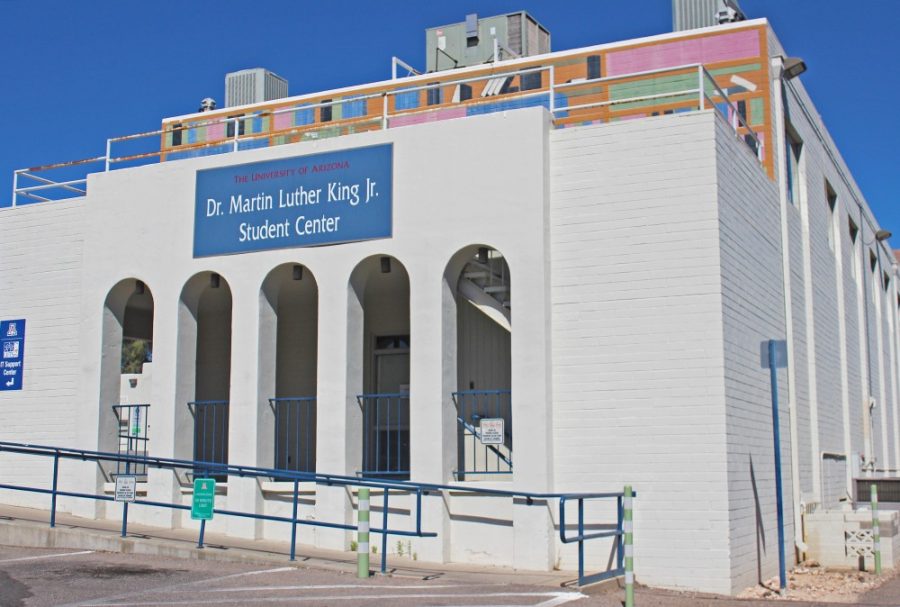African American Student Affairs is celebrating 25 years at UA and has hired a new director this semester to continue pushing its vision forward.
Kimberly “KC” Williams was hired as the new director of the affairs department during a time in which UA is highlighting its commitment to a more diverse community.
“I’m grateful they waited for me and didn’t start without me,” Williams said. “Because everything here is our collective vision—the students and me. I love that.”
Williams arrived on campus just before renovations began on the AASA location this semester at the Dr. Martin Luther King Jr. building, the first to occur since its opening in 1992.
The scheduled completion is set for May 3, and will include kitchen space, an activity area, new office space for staff and an extra room converted into a quiet area.
“I encourage especially the black students on campus to come through and see who we are and see what we are about,” Williams said. “We are here for you, this can be your home away from home and you may not need us all the time but when you do we’re going to be here.”
Williams hopes the Dr. Martin Luther King Jr. building can be a safe place for black students to investigate their identity.
“I feel so grateful to have people around me that also are really passionate about giving black students a home away from home,” she said.
RELATED: UA continues working to include large Hispanic community
Carlos Williams, a graduate student in educational psychology and part of the search committee, said she took the time to research and understand student needs.
”The neat thing about her presentation is that she actually researched the demands of the students before coming,” he said. “And that’s how she centered her presentation around, so that showed me she cared about what the students had to say.”
Williams started as a sociology teacher in 1991 and has worked with students in multiple capacities. Whether it’s for black students or LGBTQ students, she said she tries to put it all out on the line for them.
Jocelyn Thompson, a criminal justice and psychology senior, said Williams emphasizes students taking care of themselves,
“She’s like a second mom, to be honest,” Thompson said. “You walk in as a student and that’s literally how it is.”
Williams said that UA administration’s commitment to the community is good and shows the progress that is being made and hopes that new UA President Robert C. Robbins will be committed.
“I’m just hopeful our new university president will take the time to check out the good work that we do and make sure that we have the resources that we need to do the best possible job,” Williams said.
Jessica Harris, an Africana studies and anthropology senior and active member with the Black Student Union, said the union along with the other cultural centers started out with a list of items to bring to the administration.
RELATED: Refugees, advocates give context to immigrating to US
“They were very explicit demands that requested things that we’d see as necessities but we weren’t being served with,” Harris said. “The demands were basic things like renovations that which are finally happening, more staff because were always understaffed…those were the main ones.”
Thompson said having a support system is needed while in the current political climate.
“Sometimes you get drained out, sometimes you just need to be around people who understand where you’re coming from,” she said.
Thompson said she remembers her first encounter with the building and is now ready to see the renovated project.
“I was here when it was the ugly purple, dusty, ancient relic that it was, so I’m really excited,” Thompson said.
Harris also expressed her excitement for the future opportunities for students who can experience the benefits of the previous years of hard work.
“We should definitely educate that this is where we came from and this is where we’re moving, but they deserve a welcoming space where they feel at home,” she said.
Williams said that she found past clipped articles from 1992 when the center was built. Students then were advocating for the same changes they are now.
“It was funny,” she said. “Support from the administration, safe spaces, more black faculty—it felt very similar to me.”
She said a lot has changed over the years but there is systemic work that has to be done in our society.
“We have to continue to strive to be equitable in our society and I think that’s what I’m seeing that it’s slow but it’s happening, something really good is happening and I love that,” she said.
Follow Shaq Davis on Twitter.








